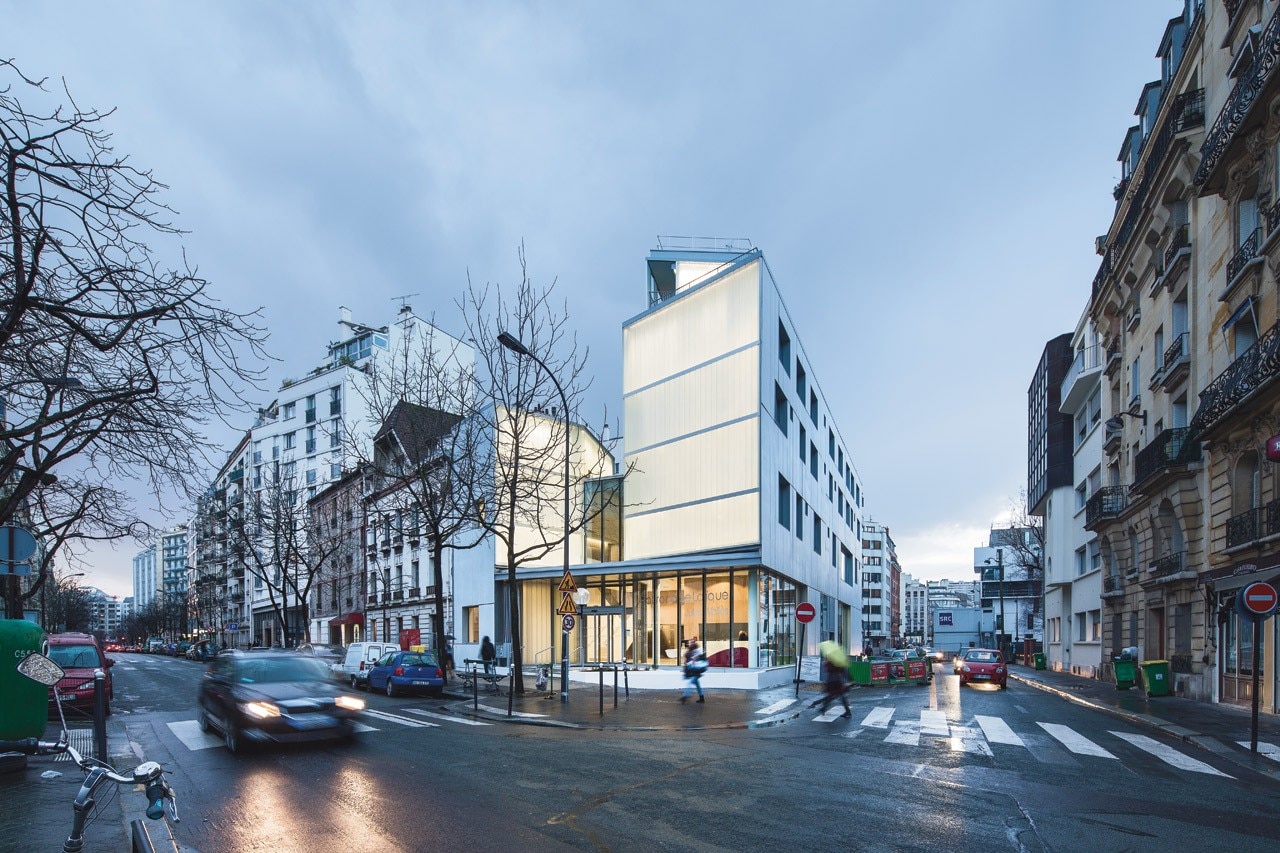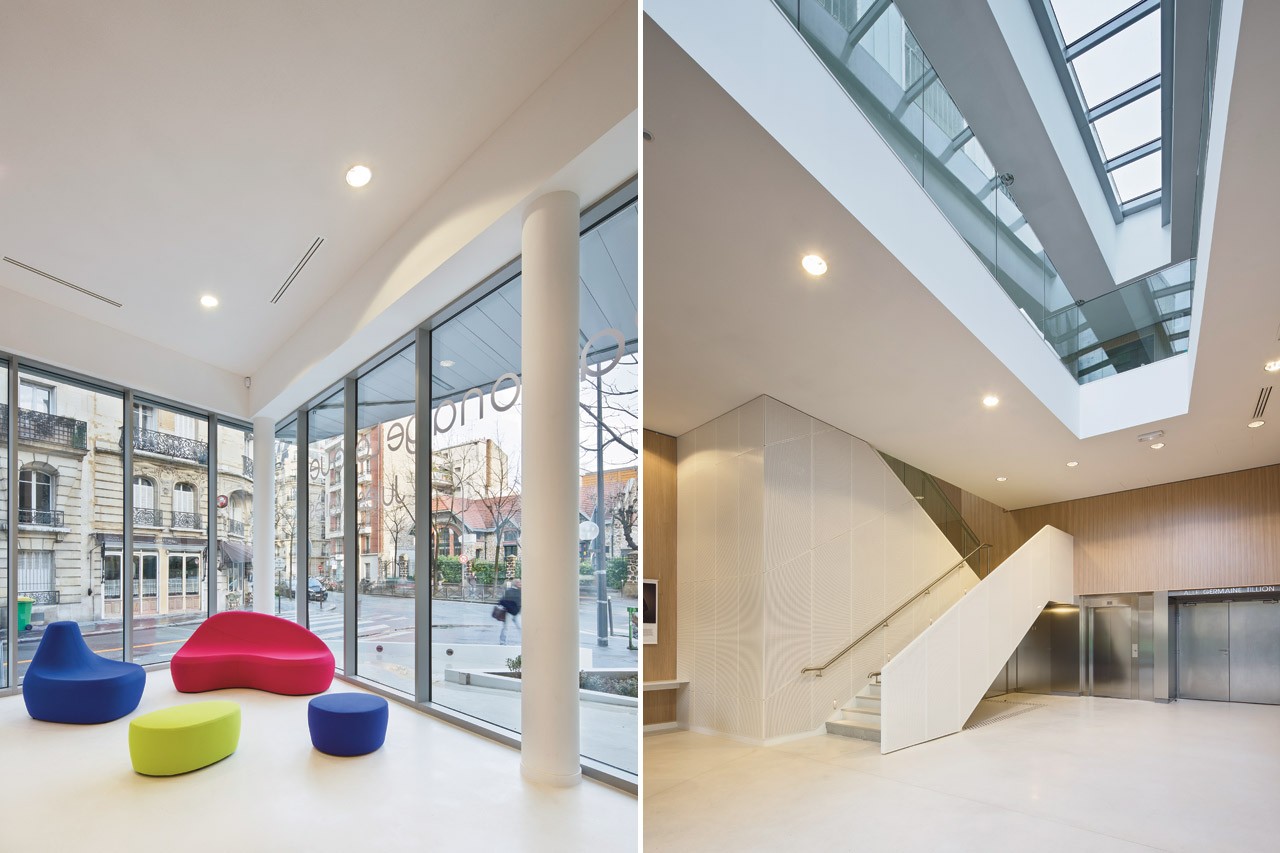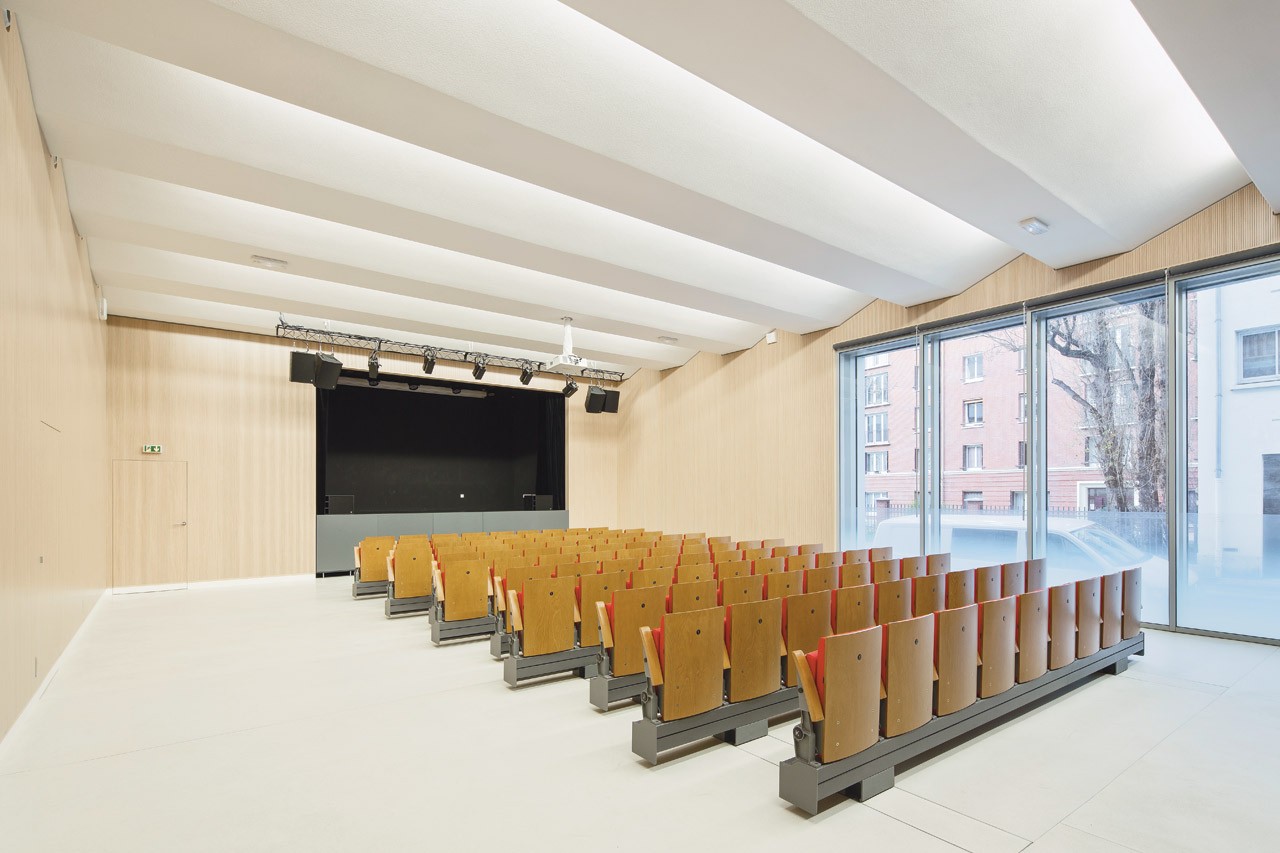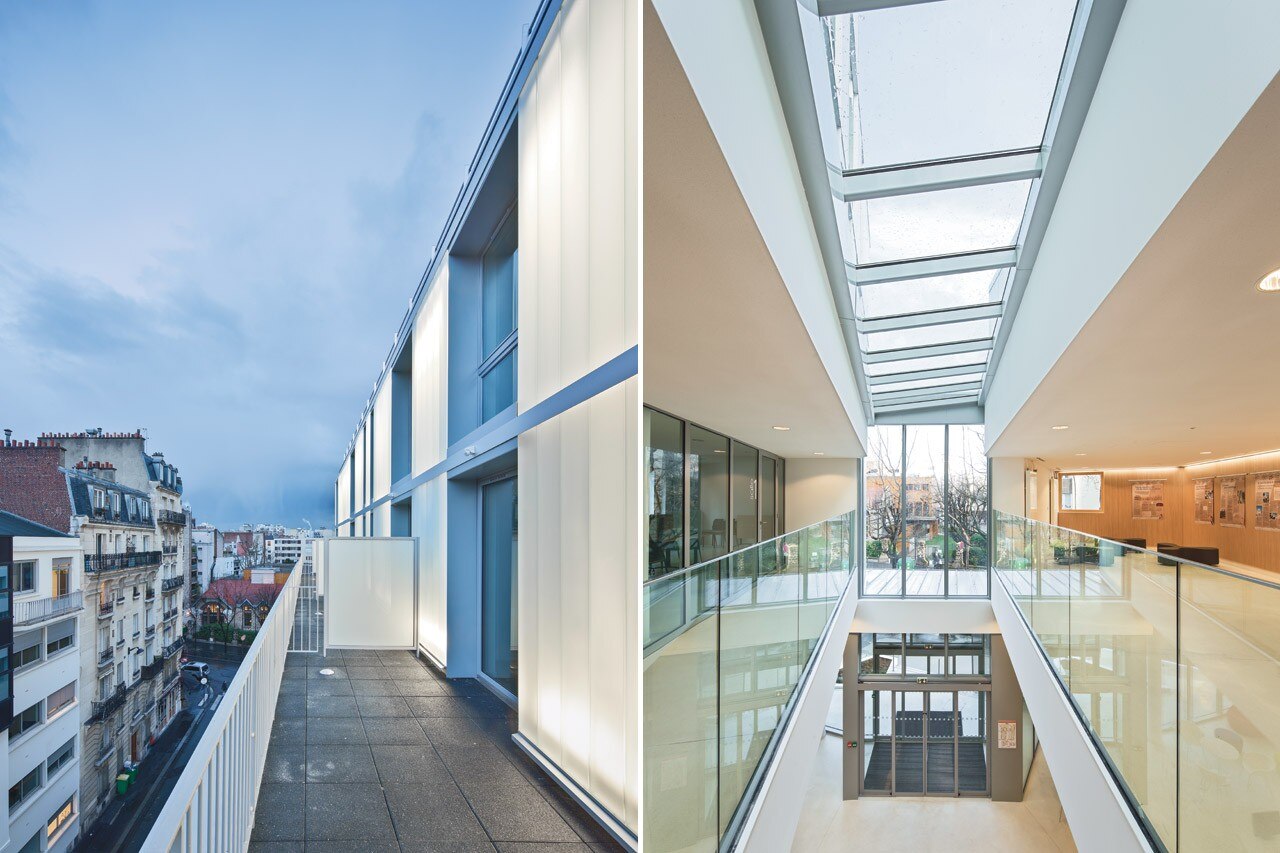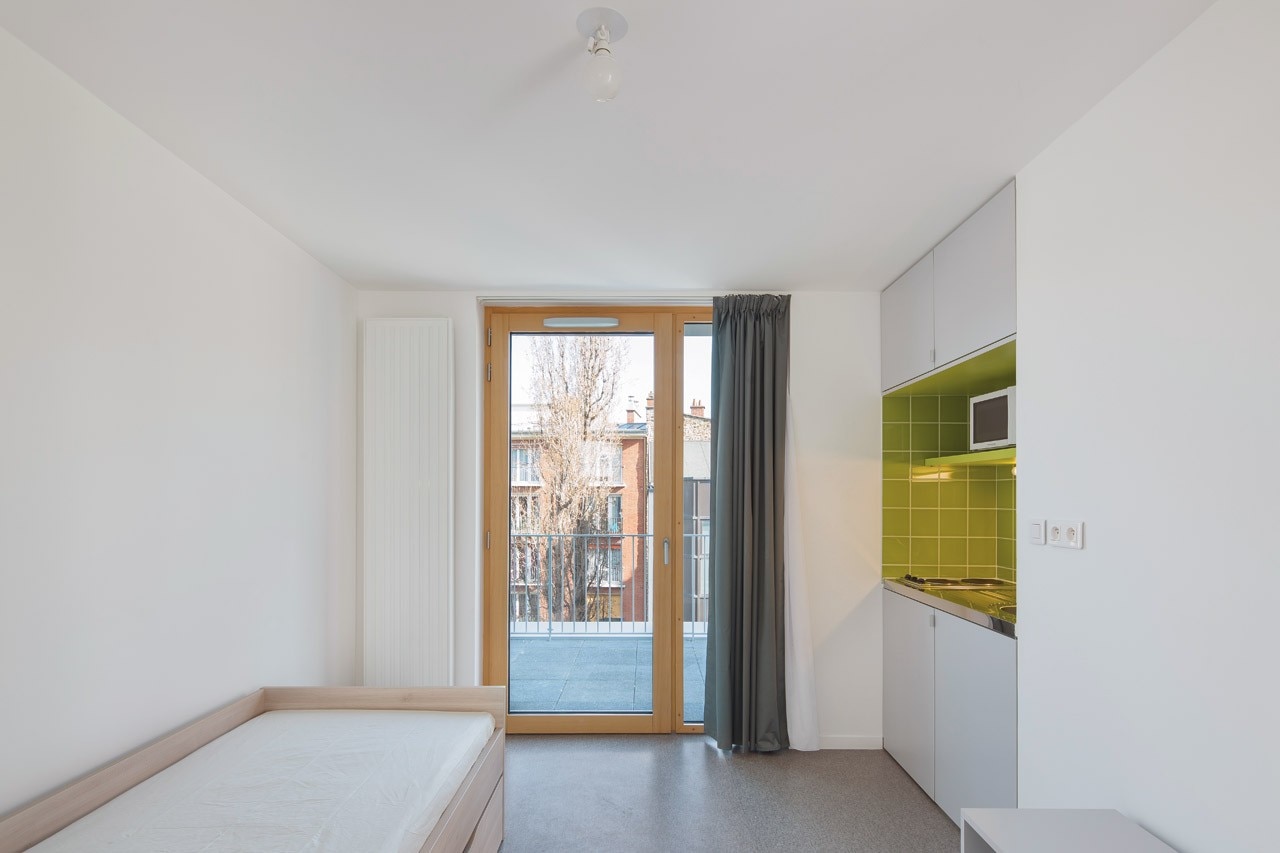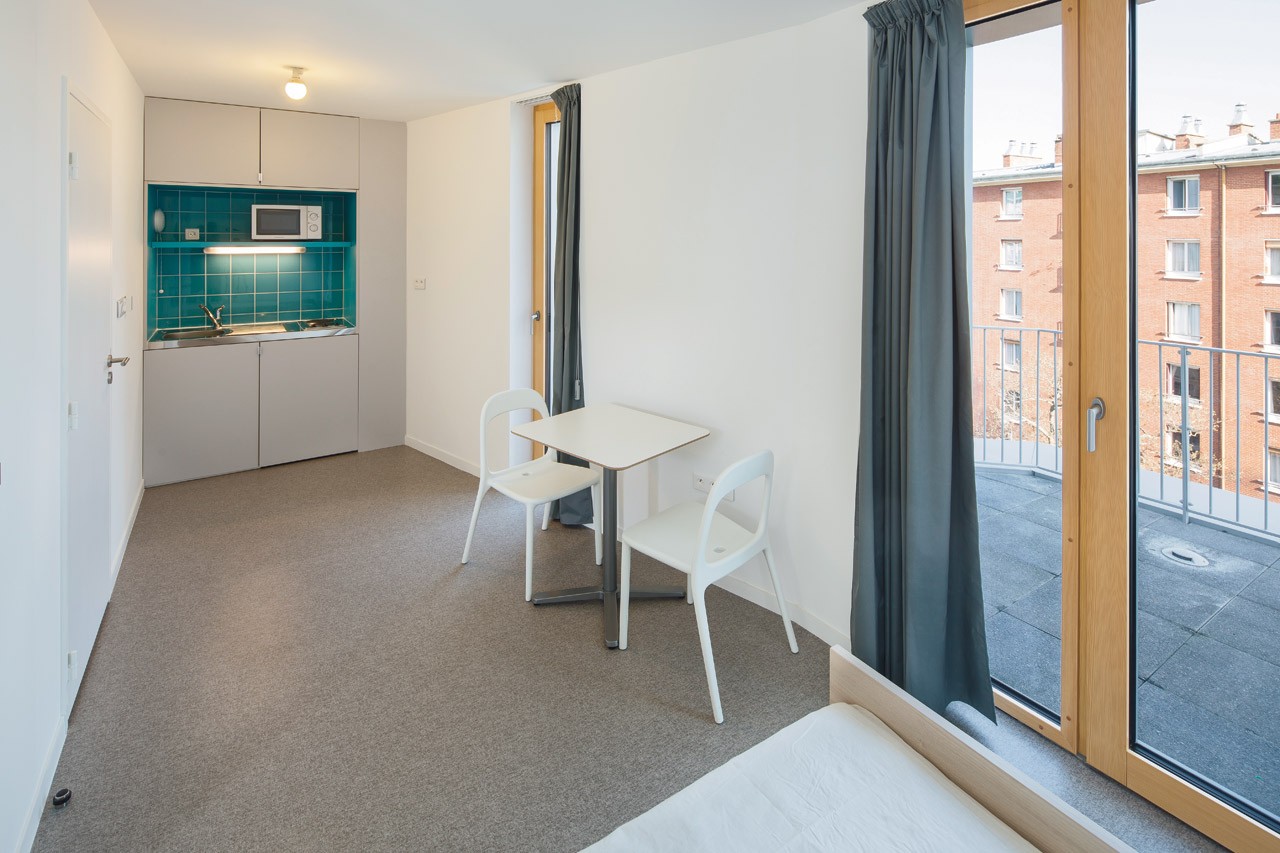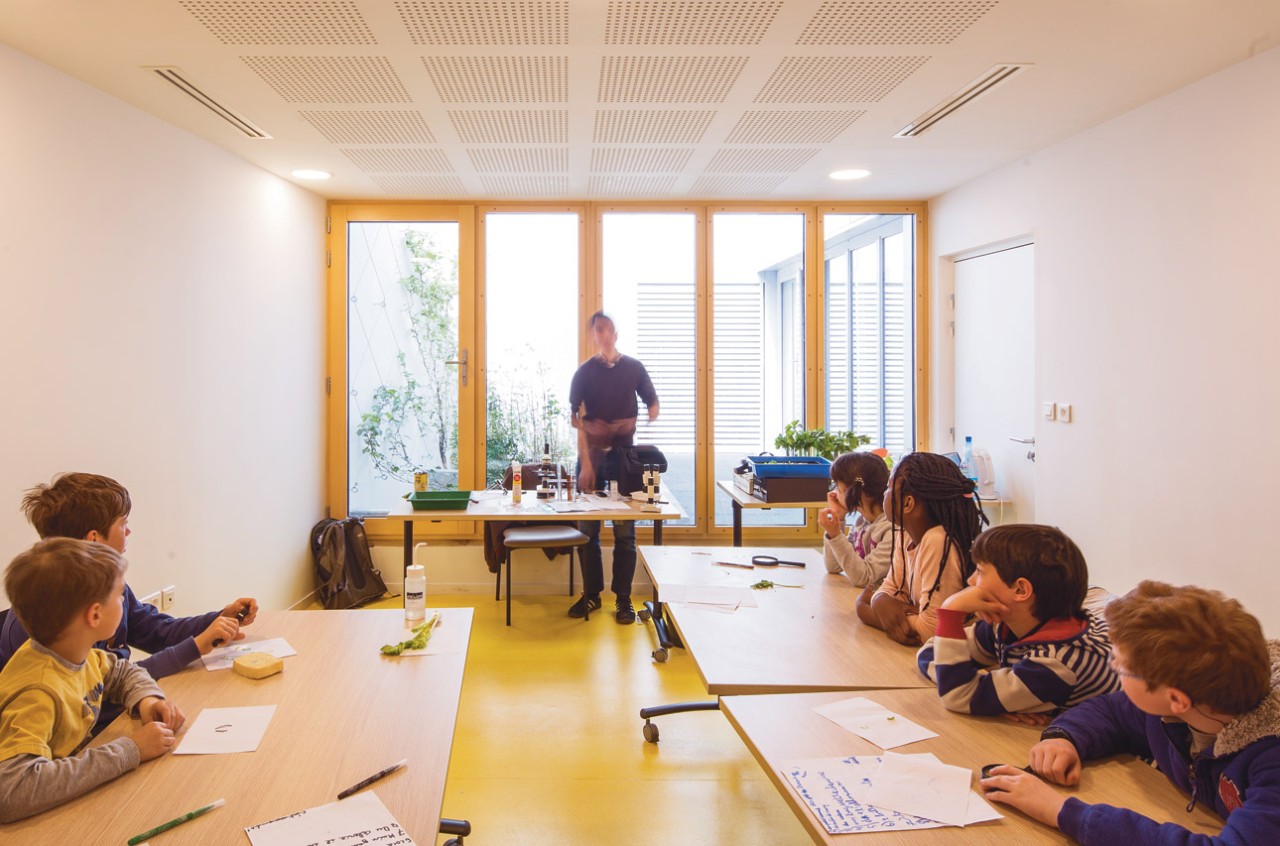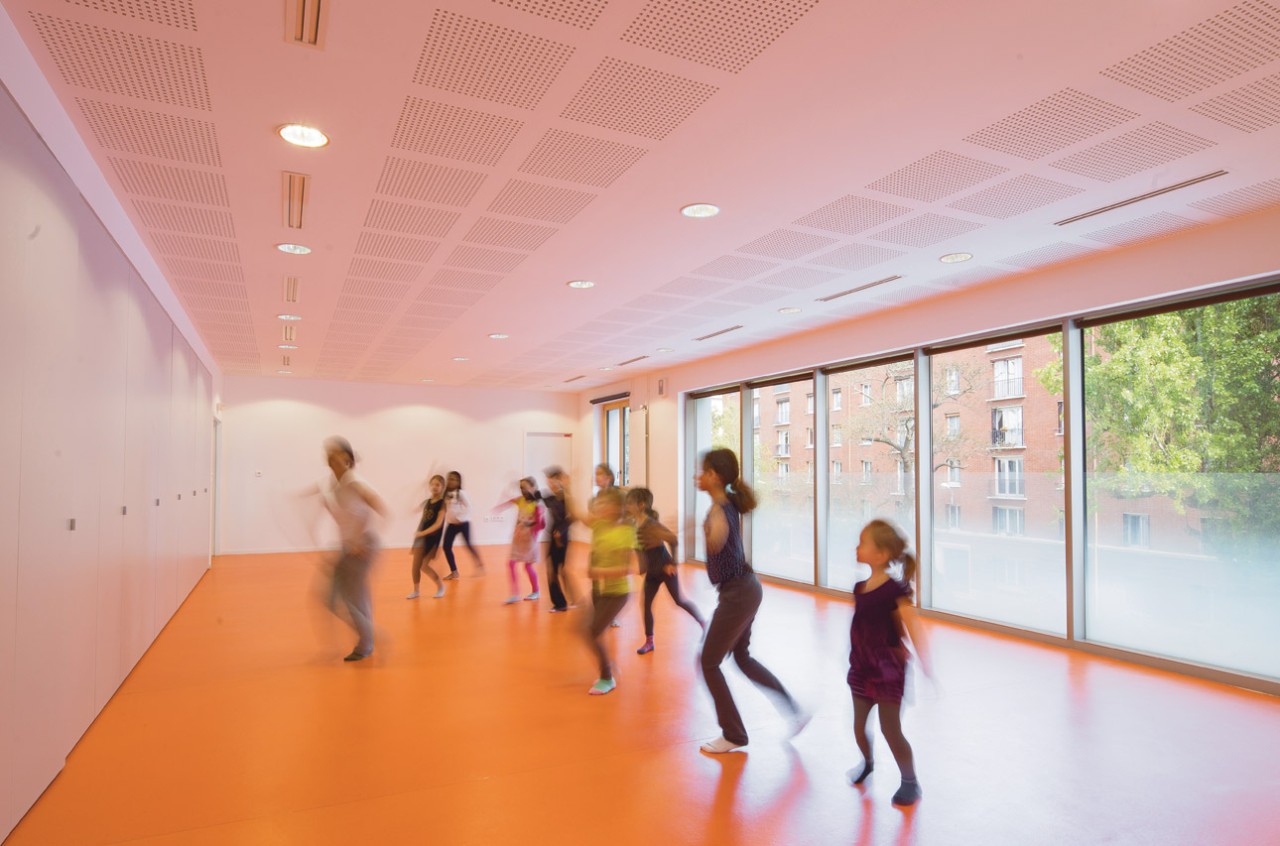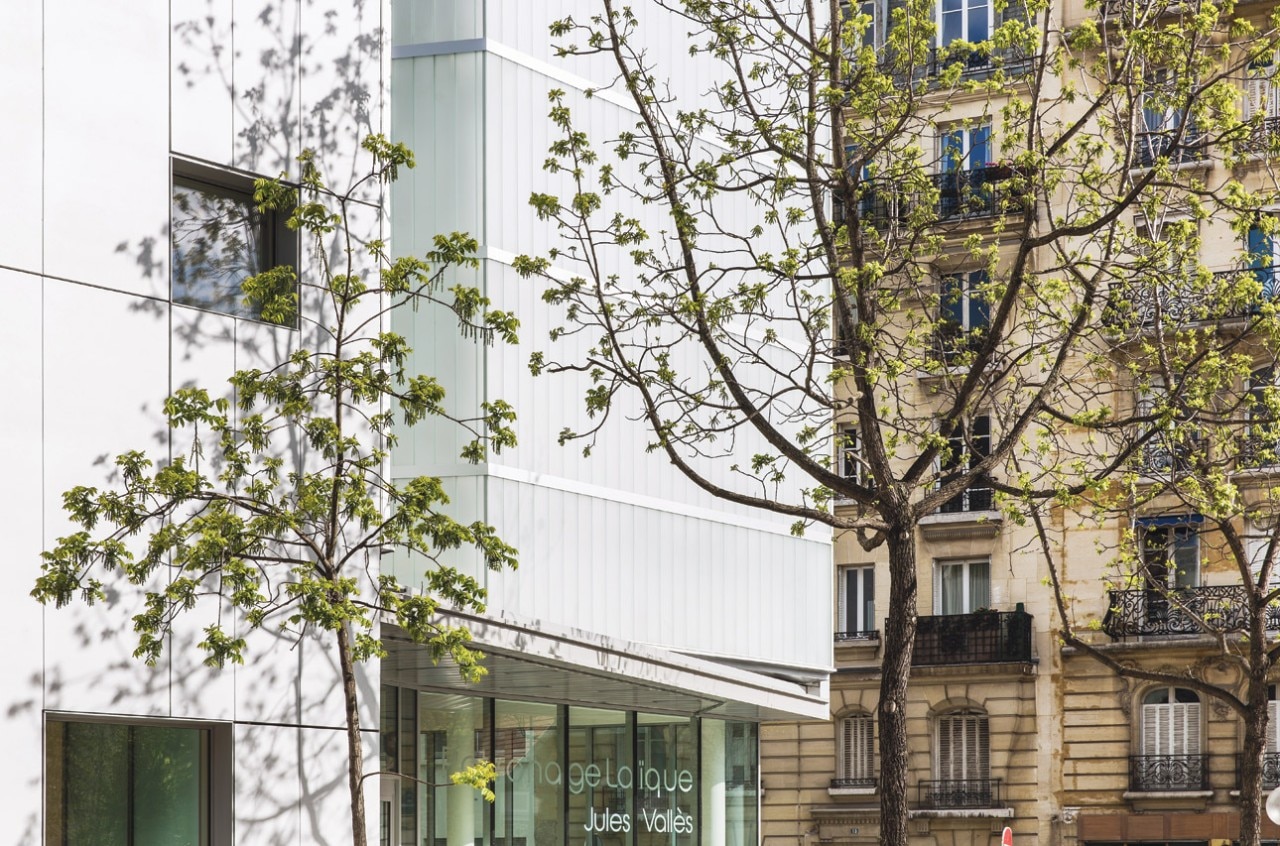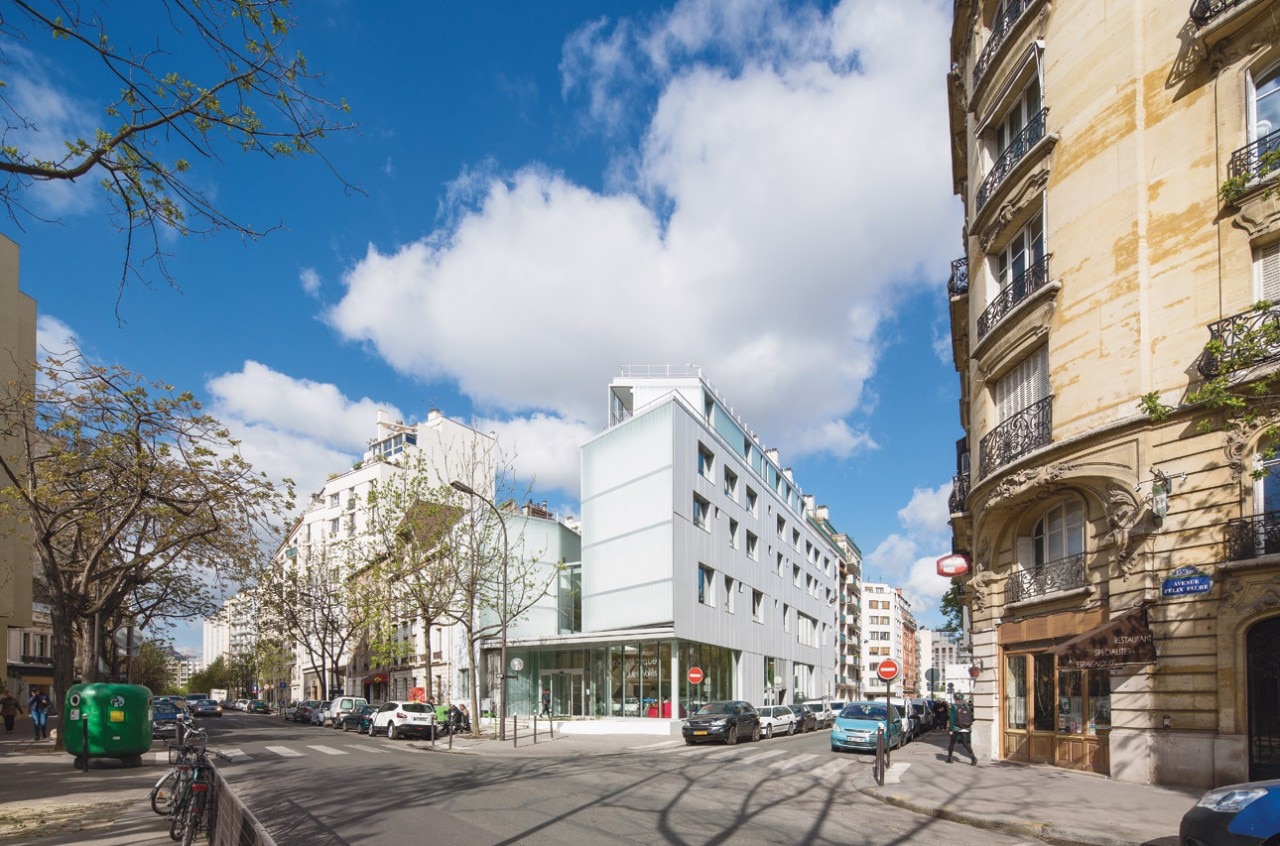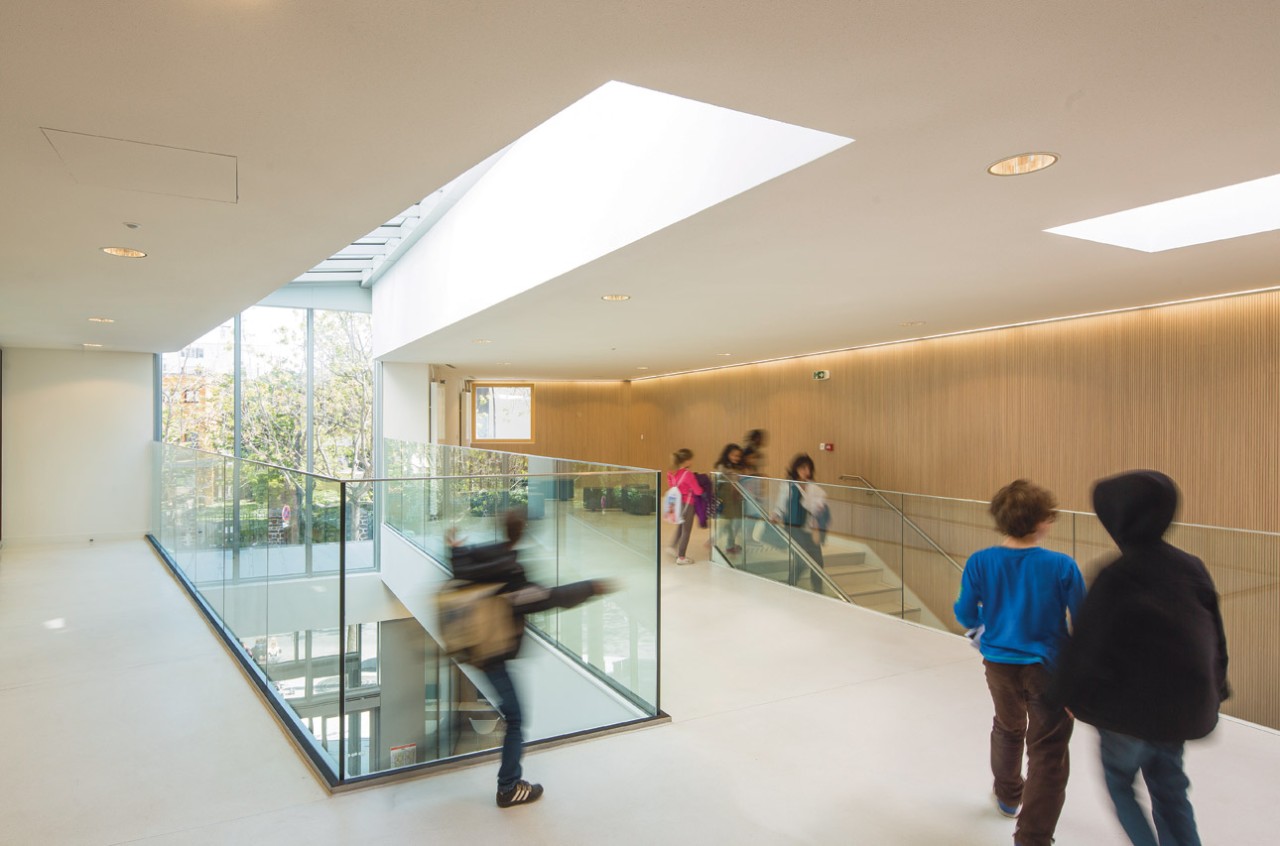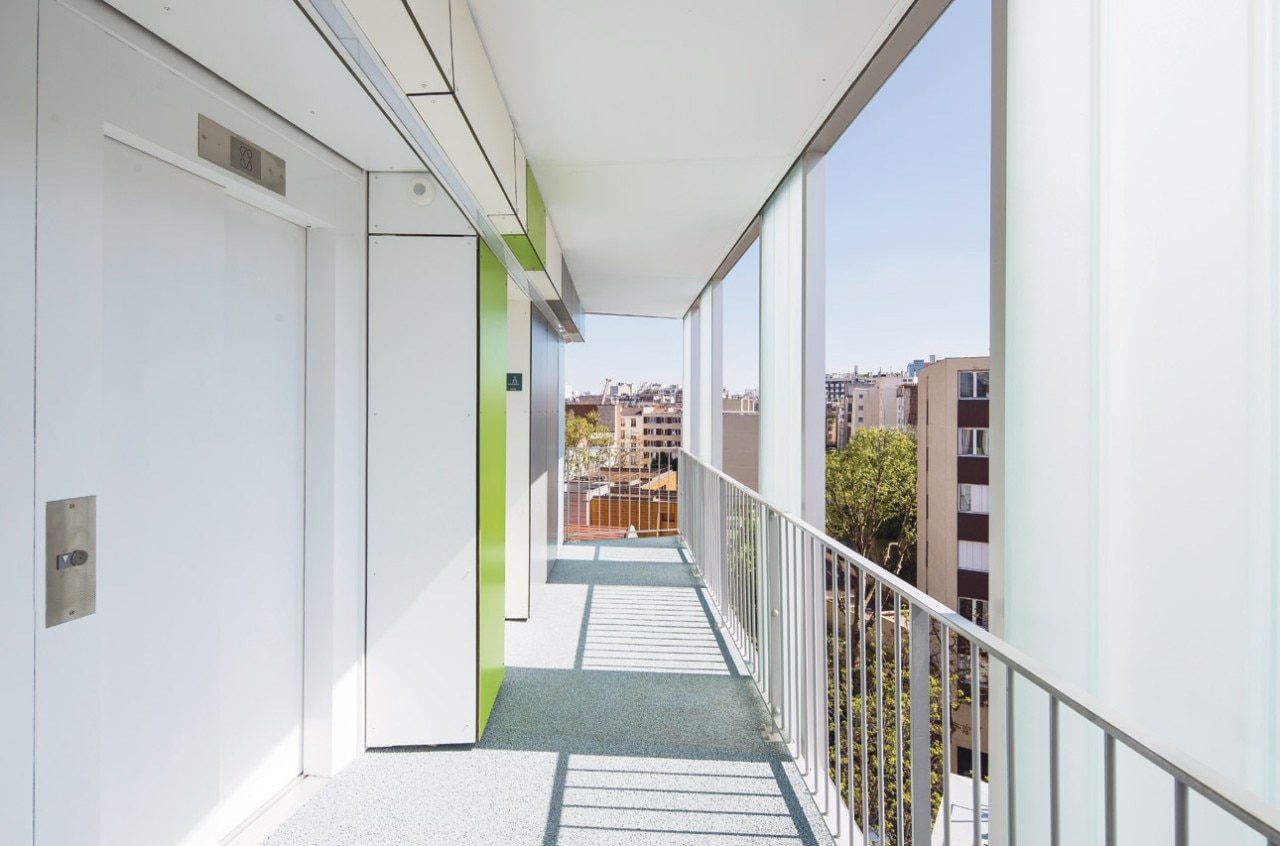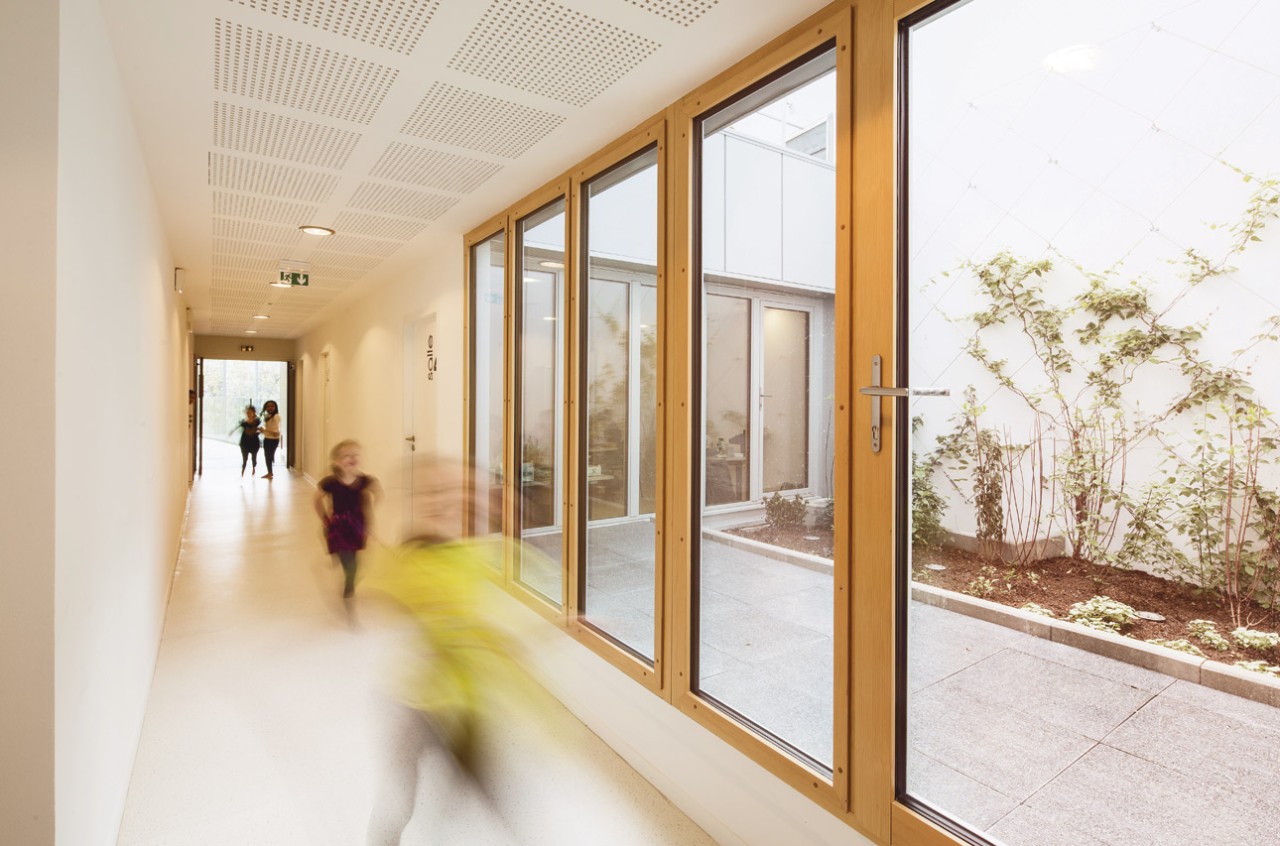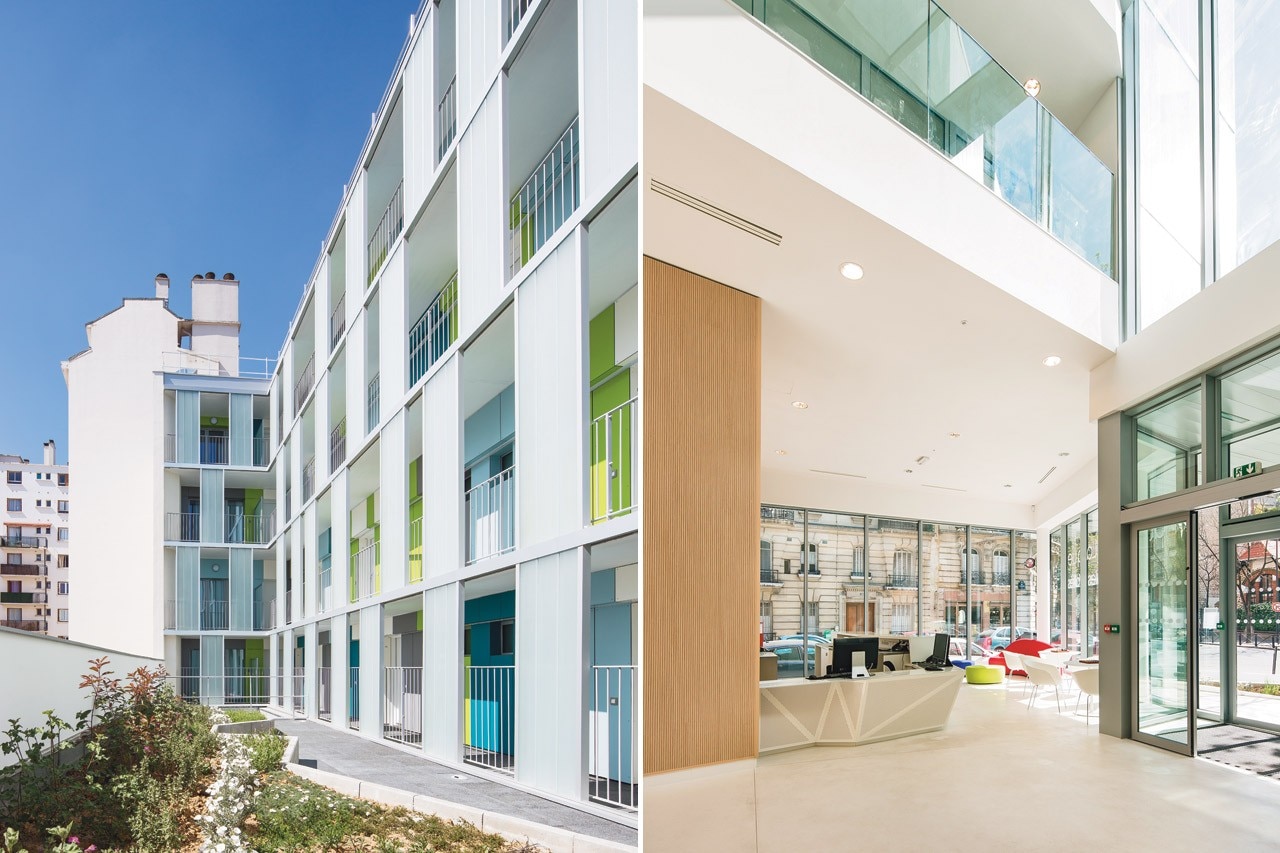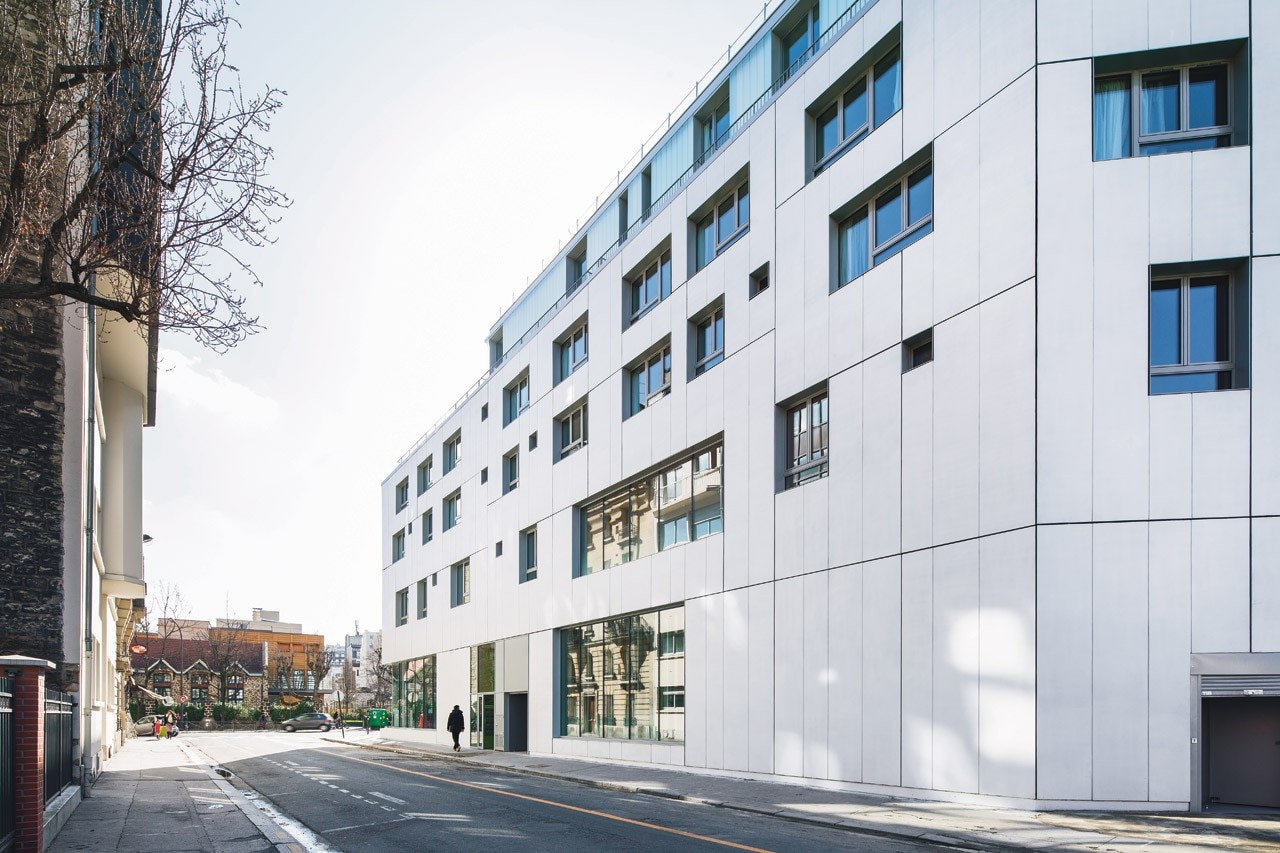
The public facility and the housing enjoy two distinct entrances. The Patronage opens wide onto Avenue Felix Faure and rises one storey from the ground floor. Its glassed-in atrium extends the public space within the building while enabling neighbours and the passers-by to glimpse at activities happening in the building. The residence has a more discrete side entrance on rue Tisserand and extends from the second storey to the fifth. The ground-level entrance on Avenue Felix Faure anchors the facility to the ground and the neighbourhood, endowing it the same informal, homely presence of a corner cafe. Up above, two recessed facades rise on either side of a high gap that looks down on the glass ceiling over the entrance lobby.
This signpost for the project is treated in translucent white glass with opalescent reflections. The 4-storey facade along rue Tisserand is treated in glazed concrete, the metallic reflections of which wed with the interior glazing. Its cadence is established by rectangular windows of varying dimensions and a recessed volume creating irregular modules.
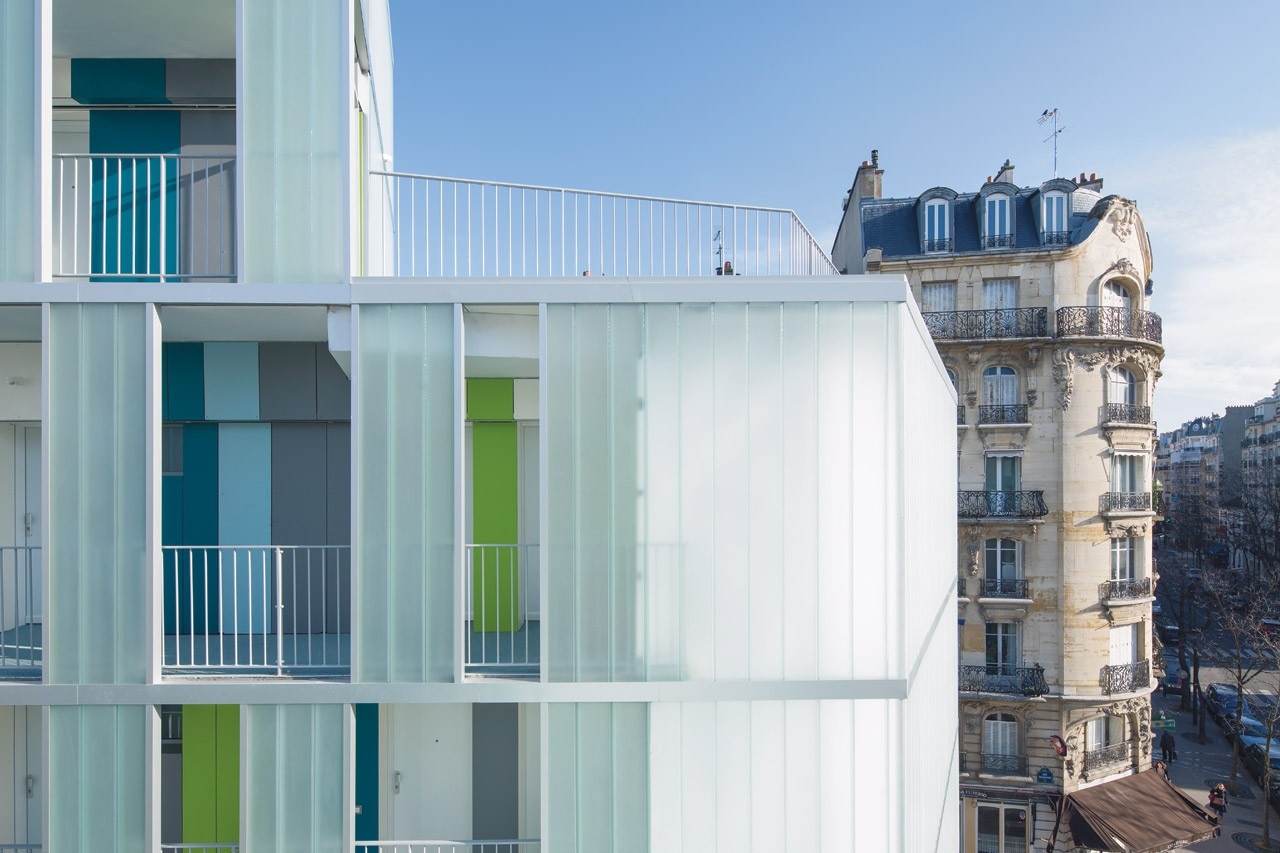
Patronage Laïque’s reception is conceived like a covered public space. The program is housed on the ground floor, the technical mezzanine and the first floor all of which are articulated around the double-height atrium. This generous open space and hallways spoke off the lobby and have been designed to be occupied in a personal and informal way by users outside of the activity’s constructed framework. Giving more than what is demanded by the program in order to foster encounters between users is a way to conserve the important social strength and identity of this place which is above all friendly and generous. On both the ground floor and upper floor these buffer spaces are given over to the collective imagination.
Beyond the computer area and cafeteria on the ground floor is the space of the multi-purpose hall, a space for entertainment with a stage, a control booth, dressing rooms and a small backstage. This space is designed as a genuine “box” in the project’s larger “box” and as such enjoys optimized acoustics. Its walls are lined with light, grooved acoustic wooden panels that bathe the hall in a warm atmosphere. The hall is composed of two colours: light-coloured panels for the flooring and stage, and darker tones for the balcony and control room. Stored under the stage, seats slide into the hall on rails, a very compact set-up enabling multiple uses (neighbourhood get-togethers, teas or buffets, ballroom dance floor, etc.) and an increased capacity for adding more seats if needed.
On the first floor the program includes numerous activity rooms and Patronage’s offices. A patio provides natural light to the art room and the floor’s access hallway. Finally a large room with warm tones offers space for dance, yoga and low-impact gymnastics.
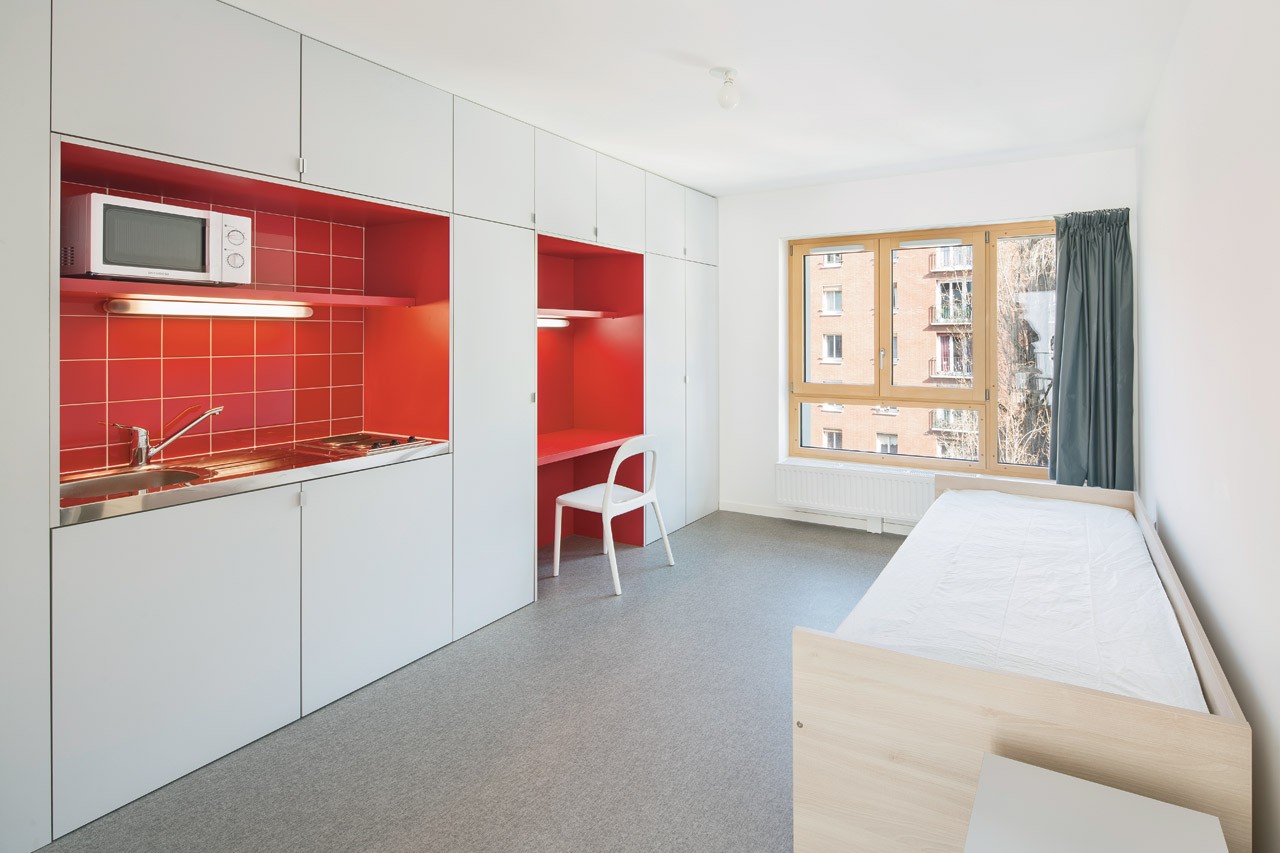
With its additional spaces, one of the project’s strong suit lies in its southern exposure from the plot’s inner courtyard. Offset from the plot’s boundary, the building frees up a patio at the heart of the block. Instead of a blind gable end–a sad vis-à-vis for the neighbourhood–the neighbours are offered a facade of access balconies, sometimes open, sometimes opaque. The access balconies that serve the three dwelling levels weave their way in the open air with the architects avoiding the pitfall of a poorly lit service hallway.
The living units combine a working wall (storage, kitchen, and office) and naturally lit and ventilated bathrooms. Generous operable glazing animates the studio space, the floor areas of which vary from 19 to 23 square meters. A community terrace on the building’s fourth floor overlooks Paris and dominates the preconceived ideas of joint ownership in social housing, whilst circumventing the prospect rules makes it possible to offer each unit a private terrace.
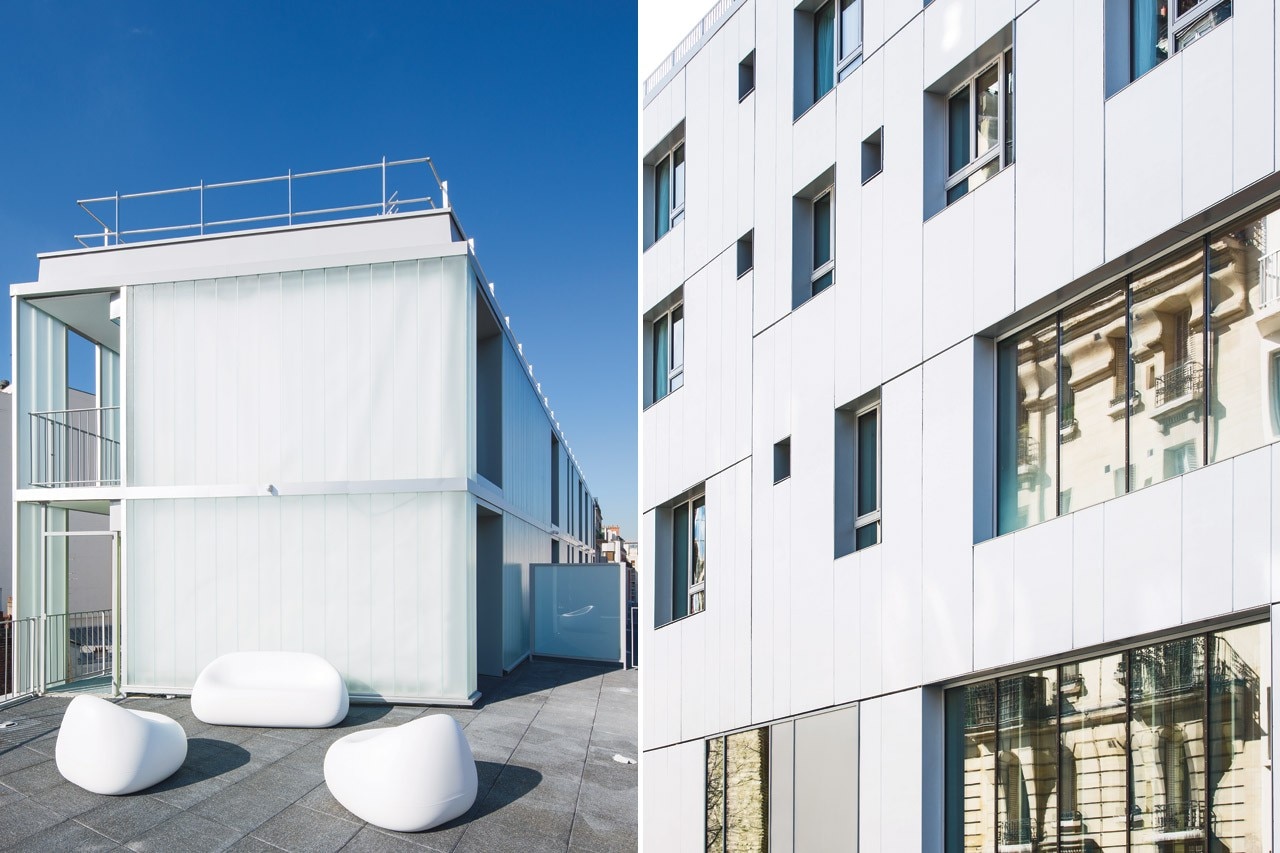
Patronage Laïque Community Centre and Social Housing, Paris
Program: Multi-purpose Association Facilities and a 30-unit low-cost housing
Architects: MAB Arquitectura + LAPS Architecture
Consultancy: AIA (structure), NOBLE (fluids, economy, environment), AIDA (acoustic), Vulcaneo (security-access)
General contractor: SRC
Client: Régie Immobilière de la Ville de Paris
Area: 1,834 sqm
Completion: Mars 2014


